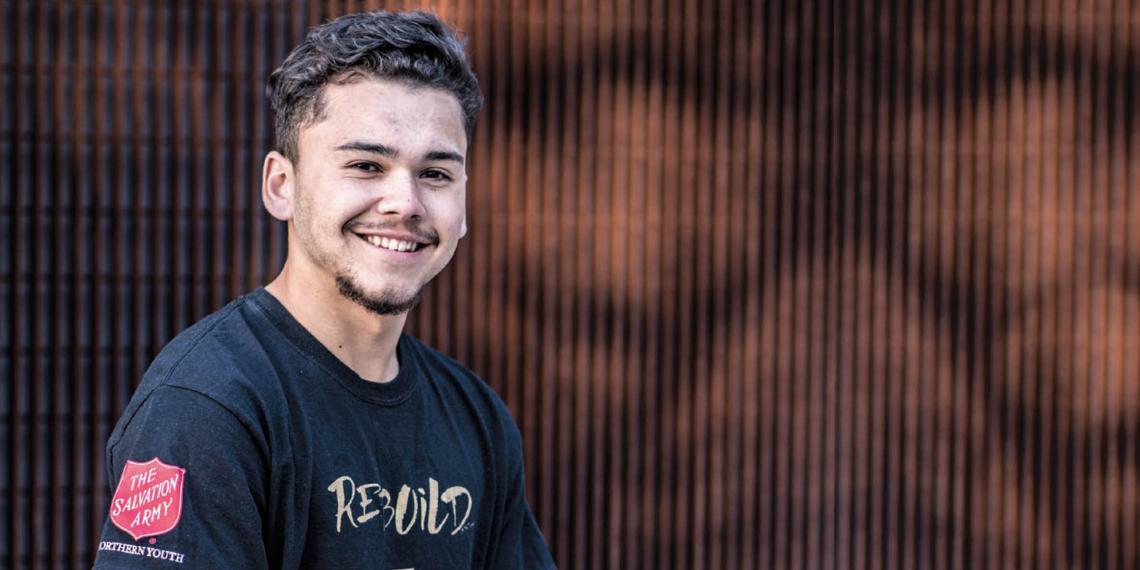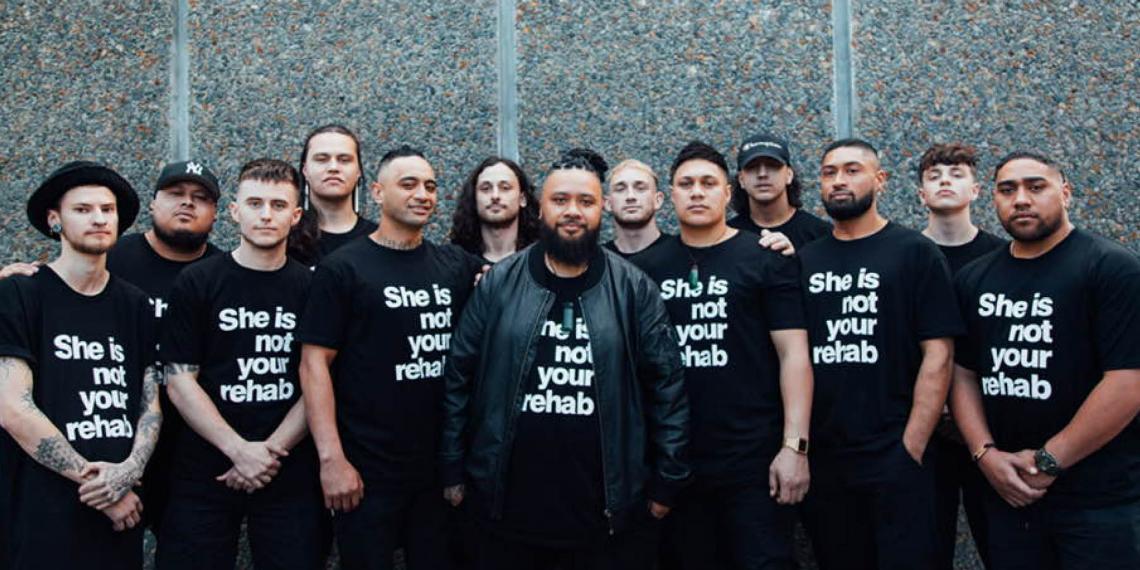You are here
The courage to be seen and heal: JD Douglas on #SheIsNotYourRehab


JD Douglas is a nineteen-year-old youth worker from The Salvation Army Mount Albert, who courageously shares with us the impact domestic violence has had on his past - but not his future. Read how JD's thinking and resilience to heal was impacted by Matt Brown's TEDxChristchurch 'The barbershop where men go to heal', and why JD recommends we engage with the ideas behind the talk to bring hope for those who are suffering.
Ko wai au
Ko Kirioke te maunga
Ko Punakitere te awa
Ko Ngātokimatawhaurua te waka
Ko Ngāti Tūtahi te hapū
Ko Ngā Puhi te iwi
Ko Te Iringa te marae
Ko Andrew rāua Kerima-Roses tōku matua
Ko Nathan rāua Anthony tōku tuakana
Ko Keri-Ann tōku tuahine
Ki te taha o tōku whaea
Ko Ihipera tōku kuia
Ko Paulo tōku koroua
Ki te taha o tōku matua
Ko Sharon tōku kuia
Ko Donald tōku koroua
Nō Niue ahau
Kei Tāmaki Makaurau Taitonga tōku kāinga ināianei
Ko Micah taku whaiaipō
Ko Douglas te whānau
Ko JD tōku ingoa
Nō reira, tēnā kouto, tēnā kouto, tēnā tātou katoa.
My name is JD, I am nineteen and I was born and raised in the Polynesian capital of the world, #SouthAuckland.
I experienced domestic violence in my childhood and that is something I have carried that with me for many years. I believe it has motivated me to ensure the next generation of rangatahi have the right support around them in the face of adversity. I have been doing youth work for the past two years and I am now training as a Youth Worker with The Salvation Army Mount Albert. Wanting to see the best in young people and uncover their hidden potential has been the why of my 'Why I do youth work' and the where of my 'Where does my passion comes from?'
#SHEISNOTYOURREHAB
Matt Brown's TEDxChristchurch 'The barbershop where men go to heal' uncovers men's tendency to wear emotional 'masks' while re-enacting violence from their past on women and children. Matt talks about his barber'shed' providing a place for men to be seen, unpack their shared traumatic experiences and move toward healing. She Is Not Your Rehab is a collective movement Matt formed, urging men to own the deep emotional work they need for their spirits to heal instead of 'using women as rehabilitative centres'. Matt outlines seven points that will move men toward this goal of gaining awareness of their own trauma-induced violence, in order to get the courage to heal.
- Many of us don’t know what real love is
- We’re too scared to be vulnerable or take our masks off, because in the past we’ve been really hurt by the people we expect to love us
- We don’t trust people
- We don’t know how to communicate our needs to people we’re in a relationship with
- We constantly interact with those closest to us from a place of our unhealed trauma
- We build walls instead of practicing boundaries
- We have no idea how to heal our own pain, but we expect someone else to. #SheIsNotYourRehab
Sharing stories of hurt people for healing
Matt's talk spoke to me on a personal level. From what I was exposed to growing up and what I had been subjected to living with domestic violence, Matt's message was something I had always needed to hear without me knowing it myself. It spoke to me from my own place of hurt, but also a place where I have found the motivation to change my life for the better.
Matt's talk provided a sense of direction for me, helping guide my decision-making in this area of my life because there are some ways I’m still being held back. Matt's talk showed that domestic violence isn’t blind or senseless or coming from nowhere. It comes from places of hurt. His talk helps you think critically and better understand why hurt people, hurt people, and their logic and actions come about from that.
Domestic violence is often a reflection of what the abuser has undergone themselves. It can also be seen as a behaviour coming from a deeper and darker pain the abuser is hiding.
'...so that one day we may find proper and just resolutions for both sides affected - the abuser and the victim.'
Sit with the victims
It is important to hear the stories of those whose lives have been plagued by domestic violence.
It is important to immerse yourself in hearing and feeling the hurt and pain behind these stories, so that one day we may find proper and just resolutions for both sides affected - the abuser and the victim. I know I was deeply affected by Matt's message. Yes, there are still areas of my life I have yet to reach that point of forgiveness and moving forward, but this video has been influential in that process.
It begins with you
Nā reira he whakatauki; Kia whakatōmuri te haere whakamua: ‘I walk backwards into the future with my eyes fixed on my past’.
This whakatauki resonates with me because of the perspective it comes from. You.
You as an individual interpreting what roads have led you to where you are today. You understanding the experiences that have got you where you are.
I was told from an early age that I would not amount to anything in life, and that I was forever linked to my past and nothing more. But I learnt through the people who have invested into my growth - my whanau, friends, Praxis (a youth worker leadership program) and church community that I am more than a surface appearance, and my past doesn’t define me but guides me into who I will become.
My reflective process has grown as Matt shared his story of his own hurt and how he used his passion of barbering to navigate reconciliation with his father. This gave me hope that I too may be able to do the same for myself, in my youth work and in the lives of all the young people I come across.
Nga mihi,
JD Douglas
The Salvation Army Mount Albert